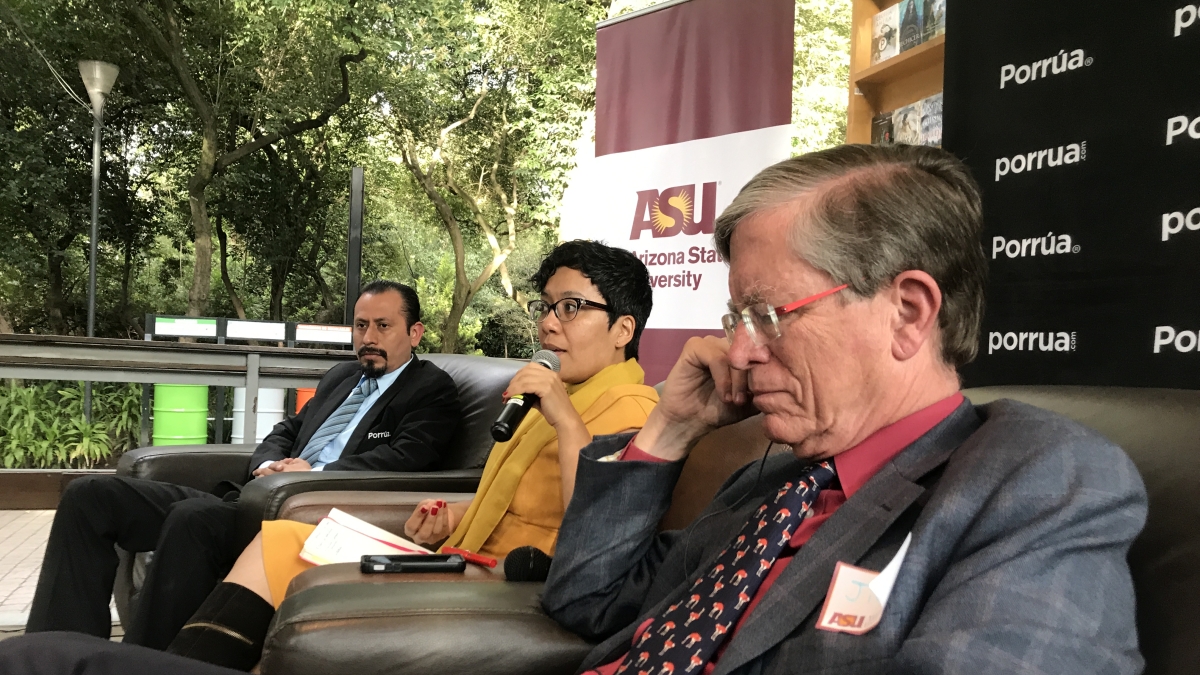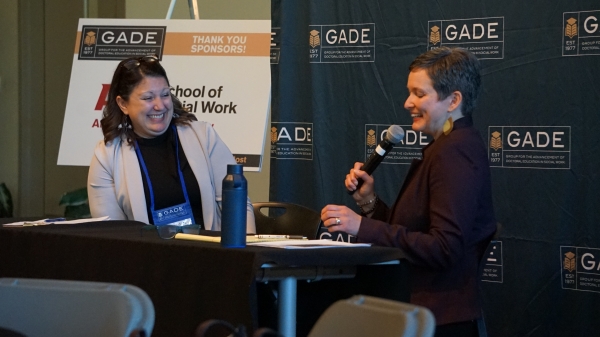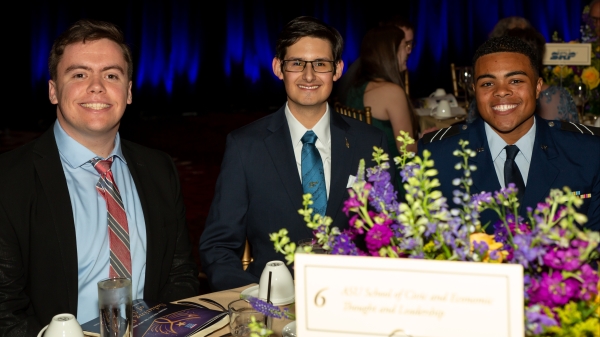Libraries still essential to cities, concludes ASU panel in Mexico City

Veronica Juárez (center), a former librarian at Mexico City’s prestigious Biblioteca Vasconcelos turned independent consultant, speaks during the latest Arizona State University Convergence Lab event in Mexico, titled “Are Libraries Obsolete?”, alongside Heriberto Hérnandez (left), manager of Mexican book publisher and book seller Libreria Porrua, and ASU librarian Jim O'Donnell (right). Photo by Zayda Avila
Libraries are an essential part of a city’s social infrastructure and of its information nervous system, as people affected by the devastating September earthquakes in Mexico City are well aware.
This was the topic of an Arizona State University-sponsored event last Thursday held in Mexico City’s iconic Porrúa bookstore on the edge of Chapultepec Park.
“It’s at times like these when we appreciate more than ever our shared cultural urban spaces,” said Andrés Martínez, ASU Professor of Practice in the Walter Cronkite School of Journalism and Mass Communication, at the opening of the latest ASU Convergence Lab conversation in Mexico, titled “Are Libraries Obsolete?”
Jim O´Donnell — ASU university librarian and professor of historical, philosophical and religious studies — postulated that the need for libraries has never been greater, while acknowledging that he wasn’t sure which of two competing scenarios would be true by 2100: we might have 3 million libraries in the world, a number he gets by globally extending the density of libraries-to-population in the U.S., or one networked central library for all humankind.
There will always be a need for local, unique materials — such as Sen. Barry Goldwater’s papers at ASU to be archived — O’Donnell said, though a more rational access to such resources as digitized scholarly articles will need to be developed.
O’Donnell added that while libraries are far from obsolete, they do need to rethink their design and purpose for a new era, as opposed to continuing to assume that their end-all, defining metric is the number of physical volumes in their stacks (4.5 million at ASU). He also joked that coffee is a new element that needs to be incorporated in all library redesigns.
But if there is one thing that will not change, ASU’s librarian insisted, it is that libraries will always be discrimination-free spaces, facilitating the discovery of new ideas.
“That to me is the social value of libraries,” O’Donnell said.
During the panel, Veronica Juárez, a former librarian at Mexico City’s prestigious Biblioteca Vasconcelos turned independent consultant, said that at a critical period of social and political change for Mexico, “libraries should become the ‘third space’ in our lives — a place where we go to read, think and relax.” She also described ongoing efforts by libraries and other cultural organizations to bring books and public reading to those displaced by the Sept. 19 earthquake.
Heriberto Hérnandez, the manager of Libreria Porrua, a Mexican book publisher and book seller established in 1900, said that his company remained committed to being a part of the broader ecosystem that encourages making reading a lifelong, affordable habit.
“Whether it’s here in our bookstore, in a library, or on the metro, you see people eagerly reading physical books these days, belying the notion that Mexico is not a nation of readers,” he said.
When asked how ASU’s commitment to be a public university that is deeply embedded in the community affects its academic library, O’Donnell cited as an example the current archiving of oral histories and other documents pertaining to a wide cross-section of Arizonans.
“We don’t merely want to compile the paper of business and political leaders,” O’Donnell said.
O’Donnell was heartened by the presence in the audience of fellow librarians from several of Mexico’s leading research libraries, as well as library science students. He told them they were the information Jedi knights of the future, arbiters of truth and facts in a world conspiring against clarity.
Imagine a world without libraries and librarians, O’Donnell said.
“What if the number of libraries in 50 years is zero and we all become dependent of whatever information we get from whatever devices we have in our hands?” he asked.
For her part, Juárez answered that would be a dystopian future.
“Libraries have always been a response to censorship in favor of truth, in favor of discovery, in favor of the kind of social good that comes when human beings have access to the best of other human beings,” she said.
More Local, national and global affairs

Sustainability takes spotlight at ASU-hosted social work educators conference
The academic discipline of social work not only educates future social workers who help people cope with life’s challenges — it…

ASU at the heart of the state's revitalized microelectronics industry
Gradually, and then suddenly. It’s not only a famous line from Ernest Hemingway’s novel “The Sun Also Rises,” it’s an apt…

ASU class connects students with veterans
A brand-new class offered this spring through Arizona State University's School of Civic and Economic Thought and Leadership is…